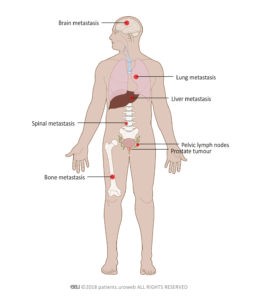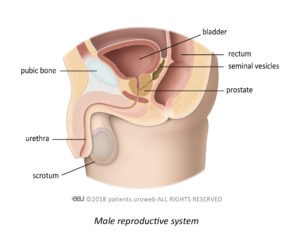Our bodies constantly produce new cells, but at times cells divide abnormally, forming a lump known as a tumour. Tumours can be benign (non-cancerous) or malignant (cancerous).
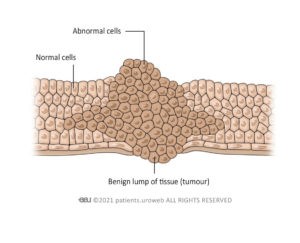
Prostate cancer refers to the presence of malignant tumour cells within the prostate. It ranks as the third most common cancer among men in Singapore.
Stages of prostate cancer
Cancer staging communicates the size and extent of cancer spread:
Localised
The tumour is confined within the prostate, often too small to be detected during a physical examination.
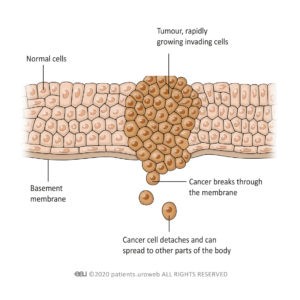
Locally advanced
The tumour extends beyond the prostate to nearby areas, such as the seminal vesicles or surrounding the bladder or rectum. The cancer has not yet spread to other parts of the body.
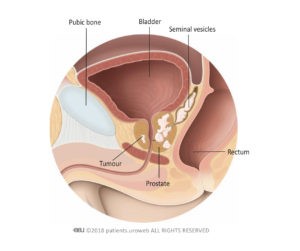
Metastatic disease
The cancer spreads to other areas, such as lymph nodes, bones or organs like the liver, lungs and brain. Node-positive disease, where cancer spreads to lymph nodes, may still be treatable with robot-assisted radical prostatectomy or radiotherapy. When the cancer has spread to the bones or other organs, hormonal therapy is typically employed.
